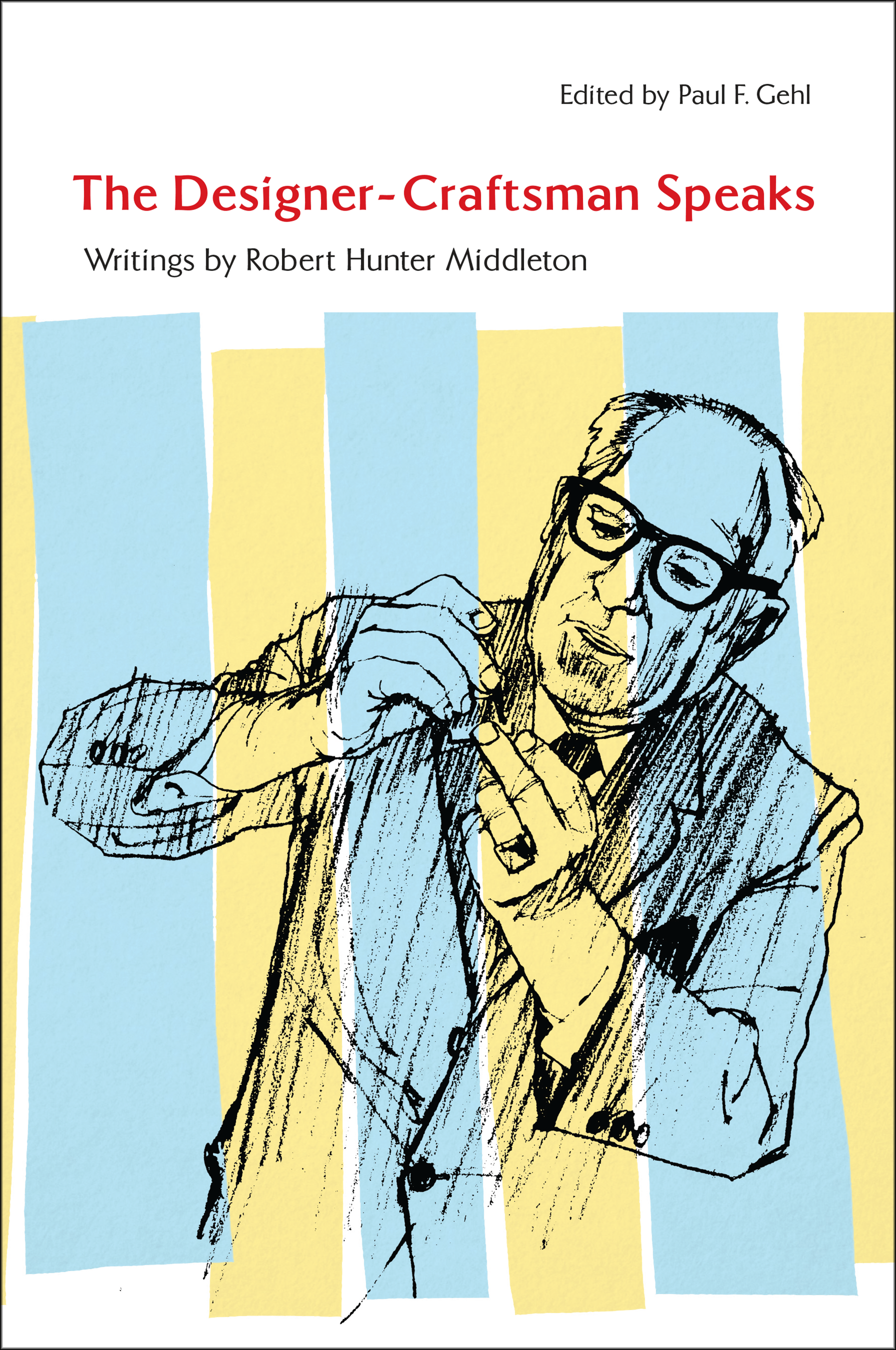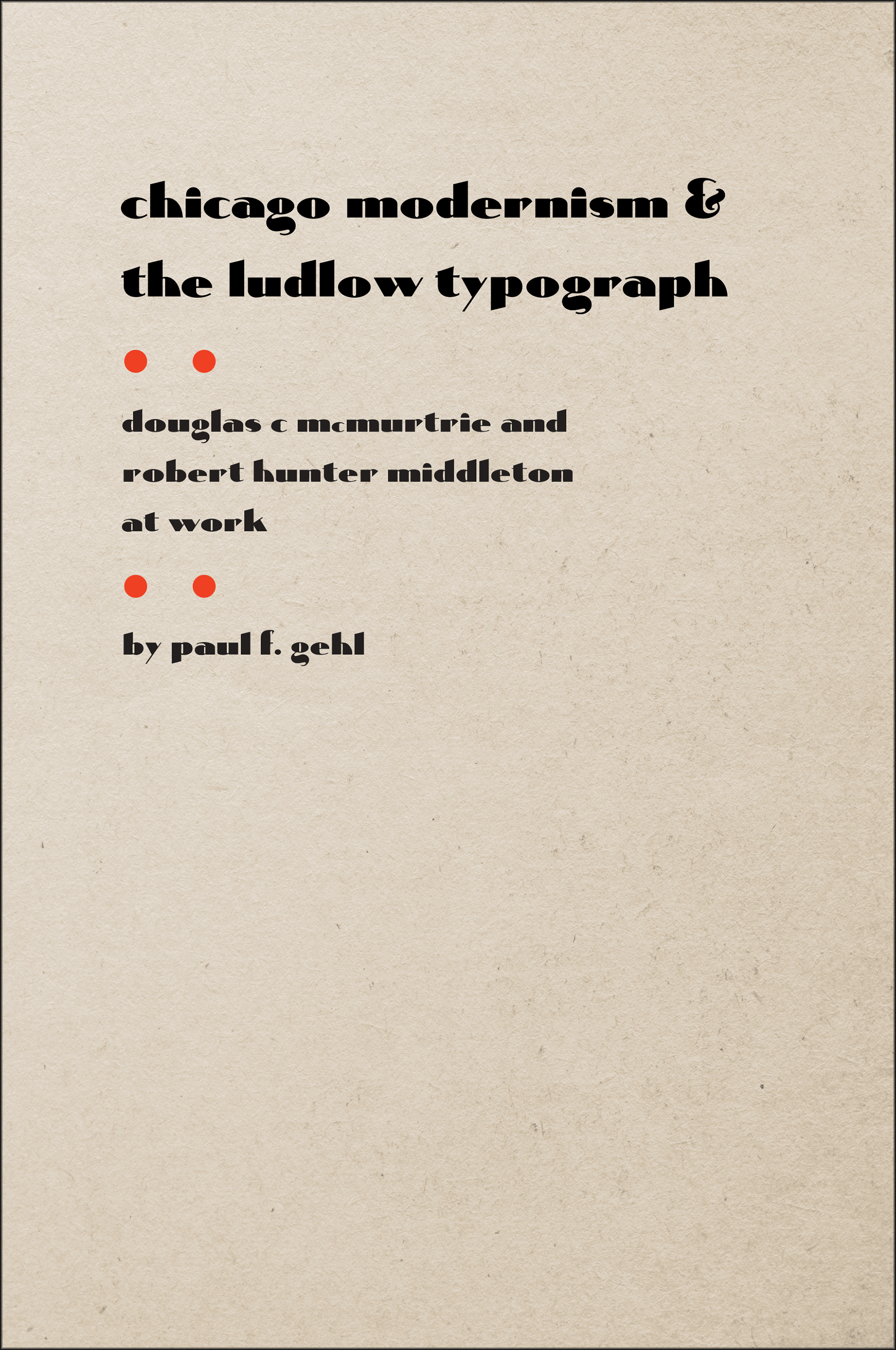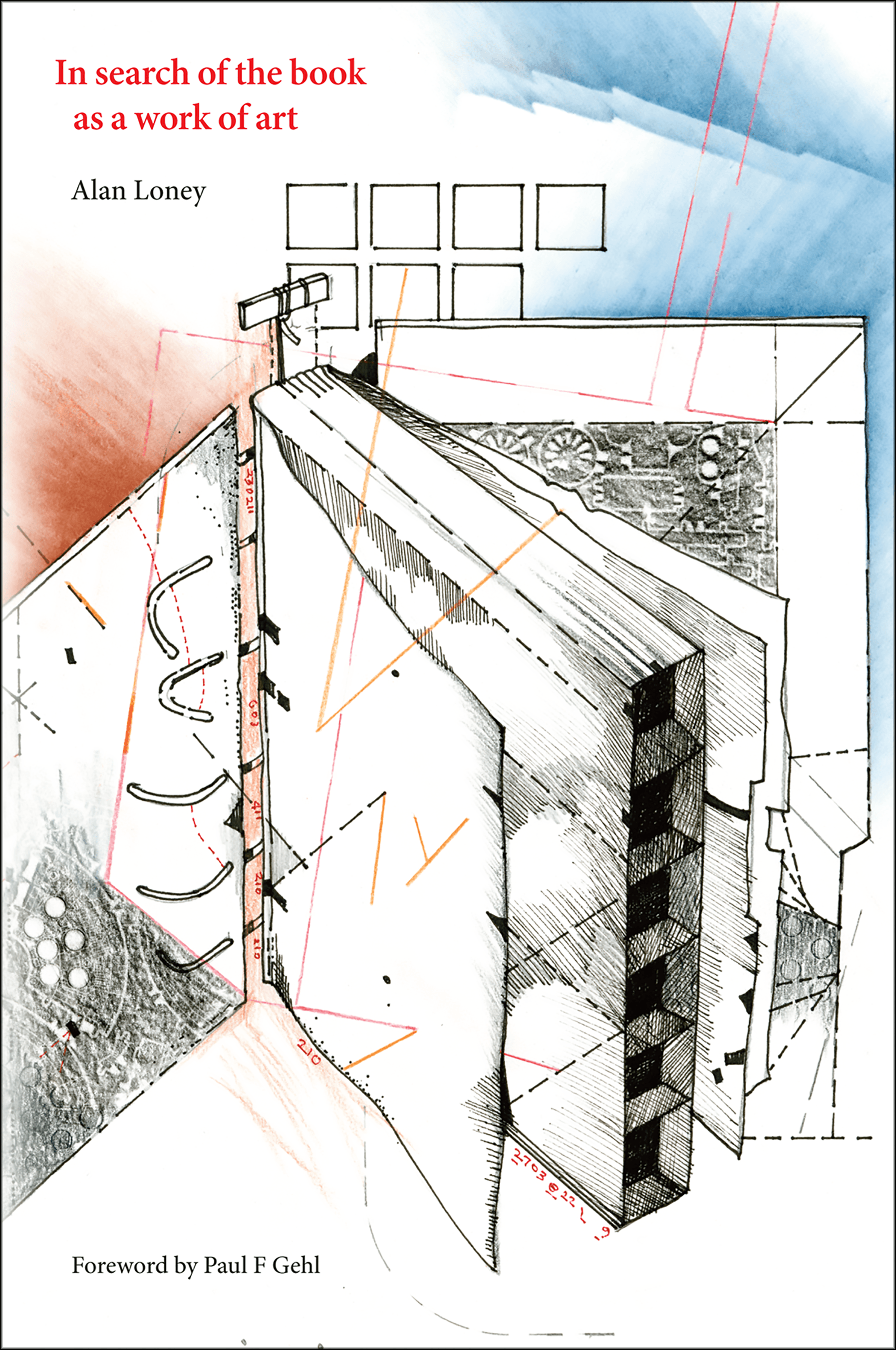
The Designer-Craftsman Speaks:
Writings by Robert Hunter Middleton
Edited with an introduction and notes by Paul F. Gehl
With a Foreword by Raymond Stanley Nelson
Published by Opifex, December 2024
ISBN 978-0-64868-072-7
152 x 229 mm / 6 x 9 inches
Paperback
111 images, colour throughout
306 pages
Includes an Index
A companion volume to Chicago Modernism & the Ludlow Typograph
Robert Hunter Middleton (1898–1985) was one of the most prolific American type designers of the twentieth century. He eventually claimed twenty-six original typefaces as his own designs, eight of them issued in series. The commercial and industrial context for this achievement is described in an earlier Opifex volume, Chicago Modernism & the Ludlow Typograph, also by Paul F. Gehl.
The Designer-Craftsman Speaks presents us with something deeper — Middleton’s own thoughts about the craft dimension of design. Its title reflects his conviction that the best design work was informed by centuries of craft tradition in creating letterforms and texts. In his view, typography, design, and craftsmanship were intimately related.
Most of Middleton’s writings were occasional. This anthology offers the only substantial collection of his prose to date, including unpublished pieces — notes, memoranda, talks, lectures, drafts — and finally gives a voice to this influential designer half a century after the last of his typefaces appeared.
Accompanied by more than one hundred images, many not previously seen outside the archives of the Newberry Library — advertisements, historical material, type specimens, photographs, and examples of Middleton’s own work.
Includes a personal reminiscence by Raymond Stanley Nelson, punchcutter and typefounder, to whom Middleton was friend and early mentor.
John Downer adds —
Distributed in Australia and New Zealand by Opifex and in all other countries by Oak Knoll Press.
AU$85 in Australia and New Zealand, US$70 in the rest of the world.
Standard economy postage for one copy within Australia is AU$17.00 and to New Zealand is AU$28. To purchase more than one copy or for other shipping options, please contact us.
Please note that Opifex can only accept direct orders from Australia and New Zealand — for international orders please go here.

Chicago Modernism & the Ludlow Typograph:
Douglas C McMurtrie and Robert Hunter Middleton at Work
By Paul F. Gehl
With a Foreword by Robert McCamant
Published by Opifex, December 2020
ISBN 978-0-64868-071-0
152 × 229 mm / 6 × 9 inches
Paperback
52 images, colour throughout
144 pages
Chicago Modernism and the Ludlow Typograph is the first book to provide a narrative account of type design in Chicago during the years 1925–50, when American typographers and graphic artists confronted the arrival of European modernism. Robert Hunter Middleton and Douglas McMurtrie were prominent in the period and spoke for Chicago in the national debates. Neither man was a Chicago native yet both worked for the Ludlow Typograph Co., a manufacturer of typesetting machinery. As Paul Gehl examines their years of working side by side, it becomes clear that differing experiences of the city and its design world created two different modernisms that can be traced in the beautiful types on which they collaborated, Middleton as artist and McMurtrie as ‘promotional man extraordinary’. Gehl shows how the new typography — championed loudly by McMurtrie and practised quietly by Middleton — took root in Chicago a decade before the arrival of the New Bauhaus, usually described as the singular turning point in Chicago design history. The ‘Bauhaus Boys’, as Chicagoans called them, introduced new ideas, but the seeds of their success were sown in the work of Ludlow’s two modernist pioneers.
The narrative is illustrated with more than fifty images, the most extensive documentation of Ludlow’s specimens and promotional material ever to appear in one volume, some of it never before reproduced.
‘At the core of Gehl’s fascinating account of a most improbable yet successful typographic partnership is America’s tentative steps toward Modernism at a time when revivalism remained prevalent and the ‘modern spirit’ was considered to be culturally of dubious intent. Gehl chronicles in engrossing detail and with admirable clarity the subversive energies of McMurtrie, a modernist who would tell anyone willing to listen, and Middleton, a moderniser who preferred his typefaces to do the talking. That Ludlow had both on the payroll at such a momentous time was remarkable good fortune.’
‘In the community of design historians, no one knows more about Douglas McMurtrie and Robert Middleton than Paul Gehl. This account demonstrates his unequalled knowledge of those who have contributed to Chicago’s unique design history. During nearly forty years at the Newberry Library, Paul has uncovered similar fascinating stories. My hope is that this essay is the first of many more to come.’
Distributed in Australia and New Zealand by Opifex and in all other countries by Oak Knoll Press.
AU$45 in Australia and New Zealand, US$45 in the rest of the world.
Standard economy postage for one copy within Australia is AU$13.00 and to New Zealand is AU$21. To purchase more than one copy or for other shipping options, please contact us.
Please note that Opifex can only accept direct orders from Australia and New Zealand — for international orders please go here.

In search of the book as a work of art
By Alan Loney
With a Foreword by Paul F. Gehl
Published by Opifex, November 2019
ISBN 978-0-64868-070-3
152 × 229 mm / 6 × 9 inches
Paperback
114 pages
In search of the book as a work of art is a probing series of questions about how we understand the words ‘art’ and ‘book’ and what happens when we put them together. It argues that the categories by which we have distinguished different kinds of books no longer tell us what we are looking at when we look at new books, including many made by trade publishers. Categories like ‘fine press book’ and ‘artist book’ have served useful purposes in the past, but are now redundant in the face of the incredible range of categorical overlaps in books that people are actually making. Along the way, this book explores and explodes a number of current ideas about books whose use-by dates are seen by the author as well and truly passed.
‘Alan Loney’s newest book invites the same type of deep and lasting discussion as his 2010 monograph, The Books to Come. Craft practice, canonical work, the contested role of academia, philosophical approaches to the Book and book, all become food for thought and questioning. From Mallarmé to Beatrice Warde, Loney offers us a variety of voices, including most importantly his own, through which we can explore our connections to the book as an object and as a work of art.’
‘Loney’s personal approach is strong medicine — an antidote to the worn discourses that drain the concept of the book as a work of art of all meaning.’
Distributed in Australia and New Zealand by Opifex and in all other countries by Oak Knoll Press.
AU$35 in Australia and New Zealand, US$30 in the rest of the world.
Standard economy postage for one copy within Australia is AU$10.00 and to New Zealand is AU$21. To purchase more than one copy or for other shipping options, please contact us.
Please note that Opifex can only accept direct orders from Australia and New Zealand — for international orders please go here.